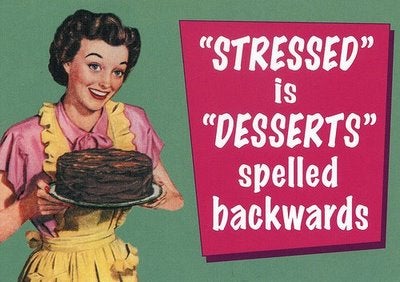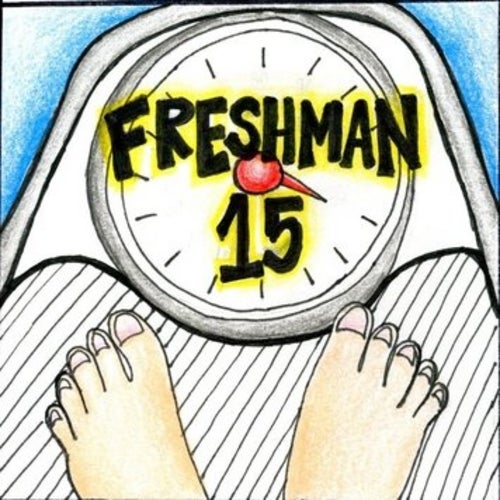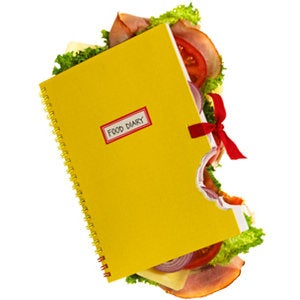Stress can be caused by many different situations, but it can also affect many different parts of your life. For me personally, it affects my food habits the most; specifically what I am eating and how much I am eating. This then cycles back to being more stressed out because I am hungry, not eating the right foods, and worried about possibly gaining or losing too much weight, while still having to do all the things that made me stressed out in the first place.
When I am stressed, I really only want to eat pasta, chocolate, and Italian deli meats. Yes, that is a really random group, and I don’t know exactly why I want them, but I just do. When I am stressed out, I also find that I eat a lot less then I usually do. Do you ever find that your eating habits change before a major assignment or test? Take a minute and think about the last time you were really stressed out: did you eat less or more, did you start to eat random things you normally don’t, or have you caught yourself eating a random assortment of food that normally don’t match up? If you answered yes, you could be a victim of “Stress Eating”.

Image from: Science in Our World - Why Do Some People Stress Eat
“Stress Eating,” in my mind, means a change in eating habits related to, or caused by stress.
I can always tell when my best friend is stressed because she eats a lot of Kraft Dinner; for example, before exams last term, she went through a case of Kraft Dinner in two weeks. I was in shock when she told me that she needed to go back to Walmart to get more. Another personal example I can use is after my grandpa passed away, my grandma started eating a lot less. Not only was this due to living alone, but it was also caused by her higher stress level from dealing with the major recent loss.

Image from: Meme Generator
An effect of “Stress Eating” that I noticed is gaining or losing weight when you are not trying to.

Image from: Science in Our World - Freshman 15
Yes, everyone has heard of “The Freshman 15”, and yes, everyone says it’s not true. (In first year I was very perplexed by this topic, and was quite scared of having it occur to me). I personally think “The Freshman 15” has truth behind it, but it just doesn’t always show up within someone’s first year. It seems to show up gradually throughout university, and I personally think it should not exist as a term at all, but if it did, I would call it “The University Weight Scale.” This means that during university, someone’s weight can change by either increasing or decreasing; just because someone is in university doesn’t mean they gain weight. Someone who deals with stress in a different way could lose weight during their higher education, compared to someone who gains weight during it.
For example, in first year, people sometimes lose weight because they are living on their own for the first time and don’t know how to cook, so they eat eggs or noodles for every meal. Everyone has that one friend, or were that friend, who ate ramen noodles every day because they were easy to make. This is not healthy, nutritious, or doing your body any good, it’s just easy and cheap.
University students need to be careful with what they are eating while going through school. You need your brain to be at top function most of the time to retain all the knowledge you are learning. You also need to eat healthy or beneficial foods to keep yourself from getting sick and run down. Eating ramen and taking vitamins every day is not a well-balanced diet, and if you think it is, you really need to take a nutrition course here on campus. You could also check out “Option 1” later on in the blog.
Many people think overeating is the worst way to deal with stress, but undereating also has many negative impacts on people. Sometimes, undereating can have negative impacts that are more prevalent and show up faster than overeating.
In the end, there are many ways to deal with “Stress Eating” or “The University Weight Scale” on a daily basis.
Option 1: Food diary
Write down or use a website to track what foods you are eating. Track at least 2 weeks when you know you will have a low stress level, this will provide you with a baseline for when you are eating “normally.” If you can, track your foods every day. If you feel like doing this every day is too much for you after the baseline, only do it starting 2 weeks before an assignment or test and a week after it is completed. That way, you can see what and how much you are eating when you are stressed out. Tracking after the stressful event will show how your eating habits have changed back to what they were before. You will be surprized by your results I’m sure. Next time you are stressed out, you will be more cautions of what you are consuming and will be more likely to stay on your “normal” path.

Image from: Men's Health
Check out the food tracker I use! From Under Armour myfitnesspal
Option 2: Use other things to deal with stress
Turning to food or away from food to cope with stress throughout university is not a good idea. University takes a long time to complete and if your relationship with food takes the brunt of your stress, you are going to turn out to be a very unhealthy person once you graduate. Now think: if you do a 4 year undergraduate degree, you could be stressed out for 4 years! If you did co-op that’s 5 years, and now Master’s programs and PhDs, wow that’s a long time for overeating or undereating to occur.

Image from: Notable
UWaterloo offers a lot of options for you to deal with stress. Rather than having food be the thing you turn too, look into:
- Getting a shoe tag and attending yoga, cycle-fit, or Zumba through Waterloo Warriors Recreation and Sports
- Joining intramurals and taking your stress out during matches in Soccer, Hockey, or Dodgeball at Waterloo Warriors Recreation and Sports
- Being part of a club to meet new people and experience new things in things like Nail Painting Club, Muay Thia, or Quidditch at Waterloo Warriors Recreation and Sports
- Visiting Counselling Services or the Student Success Office
Option 3: Use writing to help you cope with stress
Next time you are stressed out take a few minutes to write down how you are feeling, this would be an informal, self-reflective piece of writing for your eyes only, unless you want to share. This is an activity that I do, even when I am not stressed, at least twice a week. After writing down how I feel and why I feel that way, when stressed or not, it helps me feel better about my situation because it makes how I am feeling seem more legit. If I’m feeling especially happy one day, I will write this down in detail, keeping this note for a later day when I am not feeling so happy to help improve my state of mind. Hopefully keeping notes about how you are feeling and why will help you be less stressed, just like me.
Hoping this helps you stay calm, and not stress on
Cheyenne